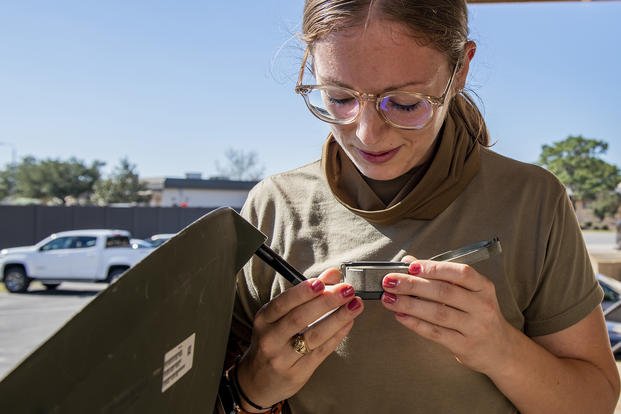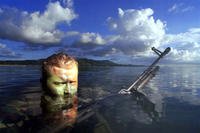The 1st Special Operations Communications Squadron supports the global warfighting and readiness missions of our Air Force special operations forces by providing a full spectrum of communications, computers, and air traffic control and landing systems supporting Hurlburt Field's special operations warriors, at home or deployed anywhere in the world.
Dedicated to the motto, "Comm for Special Ops," the unit plans for, acquires, operates and maintains base and deployed communications systems, including: critical command and control systems; local area networks; air-to-ground radios; base telephone systems; client computer systems; ground-base aircraft navigational and landing aids; tactical and fixed communications equipment; land mobile radios and base pager equipment; postal and Base Information Transfer Systems services; and Freedom of Information Act and Privacy Act support. Technologically advanced systems and outstanding airmen enable the 1st SOCS to be the communications vanguard for the 1st Special Operations Wing as they lead the way.
Lineage
Constituted 1715th Signal Service Battalion (Aviation) on Feb. 3, 1945. Activated on March 1, 1945. Redesignated 1st Communications Squadron, Air Force, on June 30, 1946. Inactivated on July 1, 1959. Disbanded on June 15, 1983. Reconstituted and redesignated as 1st Special Operations Communications Squadron on Aug. 23, 1991. Activated on Oct. 18, 1991. Inactivated on Oct. 1, 1993. Activated on Nov. 16, 2006.
Assignments
Fifth Air Force, March 1, 1945; 314th Air Division, Dec. 1, 1950; Japanese Air Defense Force, March 1, 1952; Fifth Air Force, Sept. 1, 1954-July 1, 1959. 1st Special Operations Wing, Oct. 18, 1991; 1st Special Operations Group, Sept. 22, 1992; 1st Special Operations Support Group, March 24-Oct. 1, 1993; 1st Special Operations Mission Support Group, Nov. 16, 2006-.
Stations
San Jose, Mindoro, Philippine Islands, March 1, 1945; Clark Field, Luzon, Philippine Islands, c. March 12, 1945; Okinawa, June 24, 1945; Irumagawa, Japan, Sept. 20, 1945; Tokyo, Japan, Jan. 7, 1946; Nagoya (later, Nagoya AB; Nagoya AS; Moriyama AS, Nagoya), Japan, May 20, 1946; Fuchu AS, Japan, July 1, 1957-July 1, 1959. Eglin Aux Air Fld #9 (Hurlburt Field), Florida, Oct. 18, 1991-Oct. 1, 1993; Eglin Aux Air Fld #9 (Hurlburt Field), Nov. 16, 2006-.
Honors
- Service streamers
- Korean service
Campaign Streamers
- World War II
- Asiatic-Pacific Theater:
- Luzon, 1944-1945
- Ryukyus, 1945
Armed Forces Expeditionary Streamers
None
Decorations
Air Force Outstanding Unit Award with Valor (Nov. 16, 2006-June 30, 2007)
Air Force Outstanding Unit Award
April 16, 1992-Oct. 1, 1993
Emblem Significance
Ultramarine blue and Air Force yellow are the Air Force colors. Blue alludes to the sky, the primary theater of Air Force operations. Yellow refers to the sun and the excellence required of Air Force personnel. The four quarters represent the four corners of the globe and emphasize the importance of worldwide communication. The lightning bolts represent speed and accuracy that are necessary for the success of the mission of providing communication. The chain embodies security and strength. The dagger represents Special Operations Forces and ties the unit to 1st SOW and AFSOC. The motto, "SCIENTIA CELERITAS VALENS" translates in English to "Science Swiftness Strength."
Point Of Contact
1st Special Operations Wing
Public Affairs Office
344 Tully St.
Hurlburt Field, FL 32544-5271
DSN 579-7190 or (850) 884-7190
E-mail: 1sow.wpa@hurlburt.af.mil
Want to Know More About the Military?
Be sure to get the latest news about the U.S. military, as well as critical info about how to join and all the benefits of service. Subscribe to Military.com and receive customized updates delivered straight to your inbox.











